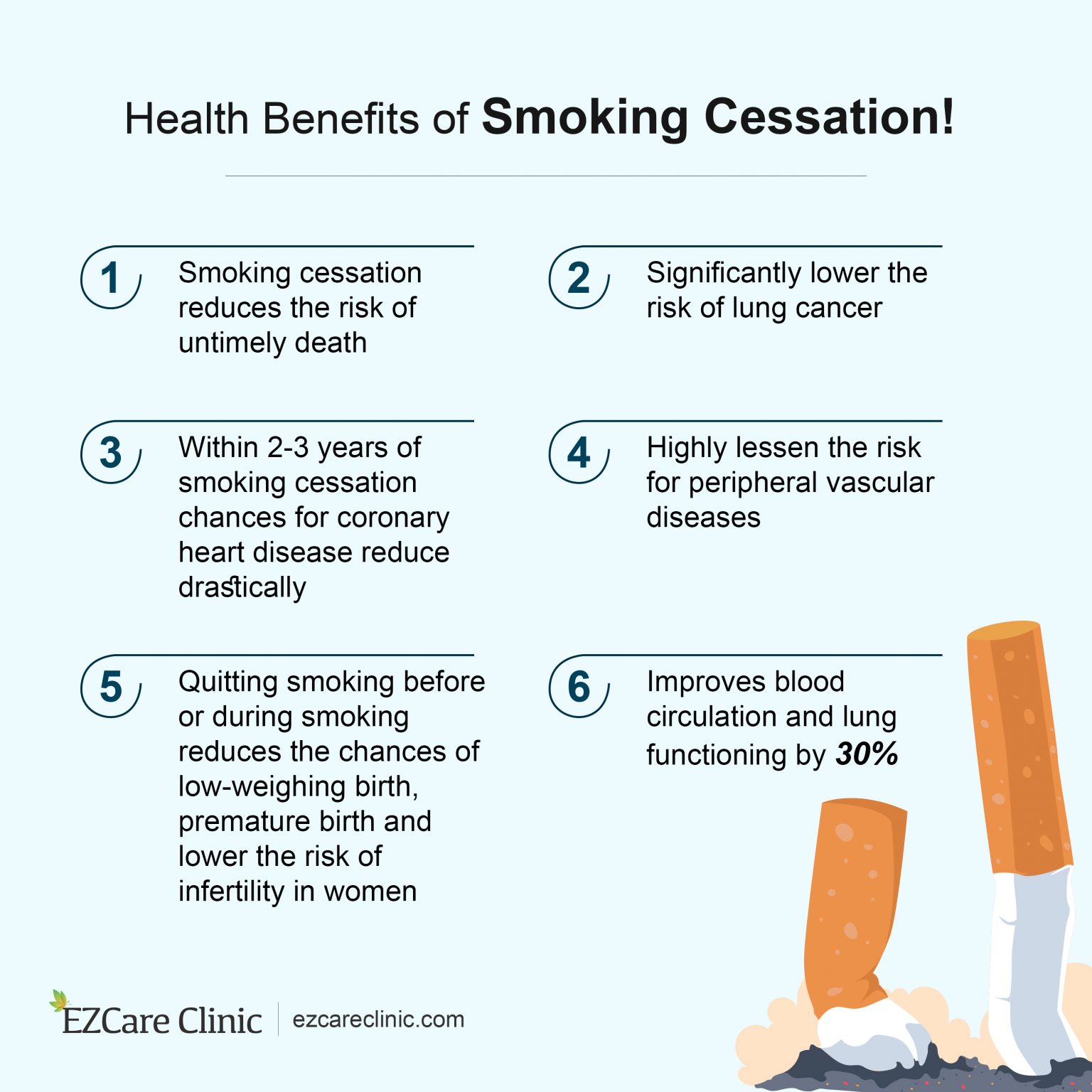Stop Smoking with Smoking Cessation Therapy

What is Smoking Cessation Therapy?
Smoking cessation therapy, also known as smoking cessation treatment, is a type of therapy that helps people quit smoking. It is an evidence-based treatment that has been proven to be effective in helping smokers quit. Smoking cessation therapy can be done in many ways, including medication, counseling, or a combination of both.
Medications for Smoking Cessation Therapy
There are several medications that can help smokers quit smoking. These medications work by reducing the cravings and withdrawal symptoms associated with quitting smoking. The most common medications used for smoking cessation therapy are:
- Nicotine replacement therapy (NRT)
- Bupropion
- Varenicline
Counseling for Smoking Cessation Therapy
Counseling is an essential part of smoking cessation therapy. It helps smokers understand their addiction and provides them with the tools and support they need to quit smoking. Counseling can be done in many ways, including:
- Individual counseling
- Group counseling
- Telephone counseling
- Online counseling
How Does Smoking Cessation Therapy Work?
Smoking cessation therapy works by addressing the physical and psychological aspects of smoking addiction. Medications used in smoking cessation therapy help reduce the cravings and withdrawal symptoms associated with quitting smoking. Counseling helps smokers understand their addiction, identify triggers, and develop coping skills to deal with cravings and triggers.
The Benefits of Smoking Cessation Therapy
There are many benefits to quitting smoking, including:
- Reduced risk of lung cancer and other serious health problems
- Improved heart health
- Better breathing
- Improved sense of taste and smell
- Save money on cigarettes
- Better relationships with loved ones
The Drawbacks of Smoking Cessation Therapy
While smoking cessation therapy is effective, there are some drawbacks to consider, including:
- Side effects from medications
- The cost of medications and counseling
- The time and effort required to quit smoking
- The risk of relapse
How to Quit Smoking with Smoking Cessation Therapy
Smoking cessation therapy can be done in many ways. The most effective way to quit smoking is to combine medication with counseling. The following are the steps to quitting smoking with smoking cessation therapy:
- Talk to a healthcare provider about smoking cessation therapy.
- Choose a quit date and stick to it.
- Use medication to reduce cravings and withdrawal symptoms.
- Attend counseling sessions to identify triggers and develop coping skills.
- Stay committed and motivated to quit smoking.
Frequently Asked Questions (FAQ)
Q: Is smoking cessation therapy covered by insurance?
A: Yes, smoking cessation therapy is covered by most insurance plans. Check with your insurance provider to see what is covered.
Q: How long does smoking cessation therapy take?
A: The length of smoking cessation therapy varies depending on the individual. It can take several weeks or several months to quit smoking.
Q: Is it safe to use medication for smoking cessation therapy?
A: Yes, medication used in smoking cessation therapy is safe when used as directed. Talk to your healthcare provider about any concerns you may have.
Q: What if smoking cessation therapy doesn't work?
A: If smoking cessation therapy doesn't work, don't give up. Keep trying and seek additional support from your healthcare provider.
Conclusion
Smoking cessation therapy is an effective way to quit smoking. It combines medication and counseling to address the physical and psychological aspects of smoking addiction. While there are some drawbacks to consider, the benefits of quitting smoking far outweigh the risks. If you are ready to quit smoking, talk to your healthcare provider about smoking cessation therapy.
